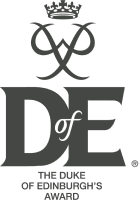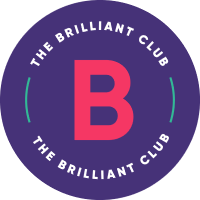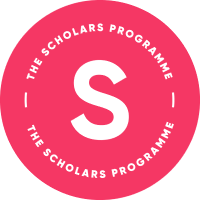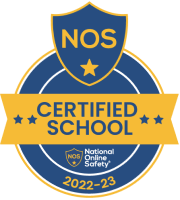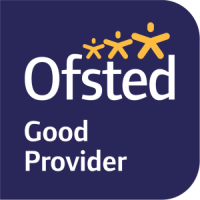This subject is part of the Faculty of Humanities and Social Sciences
Our Head of Faculty is
Mr M Durham mdurham@tcat.school
Our subject teachers and email addresses are
Mr L Allen - lallen@tcat.school
Mrs S Bohan sbohan@tcat.school
Mr I Gateley igateley@tcat.school
Mr W Huntzinger whuntzinger@tcat.school
Mrs T Lloyd - tlloyd@tcat.school
Mr W Rees wrees@tcat.school
Our subject intent is
Humankind has asked questions about the meaning of life since the beginning of time. People have lived and died for their beliefs and faith. The greatest monuments of human architecture, the greatest works of art, and the greatest sculptures, have all been inspired in the name of religion.
Religious Education (RE) or Ethics, Philosophy & Religion (EPR) at QEHS plays a significant role in the pupils’ spiritual, moral, social and cultural development. RE/EPR promotes community cohesion by fostering respect and empathy towards others with different faiths and beliefs, whilst allowing for respectful critical evaluation of these viewpoints. In so doing, pupils reflect and develop their own sense of identity and belonging. Pupils follow an enquiry-based curriculum in which they develop an understanding and appreciation for the expression of beliefs, cultural practices and influence of major religions and ideologies in the local, national and global community.
We do this through KS3 and KS4 by:
- Identifying the impact of religion on the individual, within the community and globally.
- Looking at how religious people live their lives in accordance to God’s wishes.
- Looking at what lessons religion can teach us.
- Expressing ideas about the possible consequences of belonging to a religion will have on individuals’ lives.
All parents have the right to withdraw their child from PSHE lessons. Please contact Mr M Durham if you wish to discuss the curriculum or childs participation.
Curriculum Subject Offer
Year 7 RE
Subject intent
In year 7 you learn about what EPR means and students have the opportunity to reflect on their previous understanding of EPR. Students are introduced to the study of ethics, philosophy and religion affording the opportunity to discuss and share their views and opinions on why people hold religious beliefs.
- Our World Project – This project allowed students to explore what community cohesion is, and to think about how they could develop and create better community cohesion in our world
- Islam – An introduction looking at the teachings, beliefs and festivals of Muslim adherents.
- Christmas – A brief look at the events of the Nativity and the Three Wise Men which allowed students to appreciate/understand the significance of the Christmas break.
- The Holocaust – The causes, effects and ramifications of the Nazi propaganda against the Jewish people.
- Lent and Easter – You looked at the events leading up to the crucifixion and resurrection of Jesus Christ.
- Justice – You investigated what the concept of justice means for Christians and non-religious people.
- Peace – You looked at what major world religions have to say about conflict and peace.
- Hinduism – You looked at the teachings, beliefs and festivals of the Hindu faith.
Topic Breakdown
|
Half term 1 |
Half term 2 |
|
|
Autumn |
Our World | Islam |
|
Spring |
Epiphany
Holocaust Memorial Day Justice IST -Pilgrimage |
Lent
Easter
|
|
Summer |
Justice
peace |
Hinduism
|
You will be assessed through discussion and debate, formal written assessments and independent learning through the completion of an IST looking at religious pilgrimage.
RE full Scheme of Work - Year 7
Year 8 RE
Subject intent
In year 7 you learnt about what EPR means and students had the opportunity to reflect on their previous understanding of EPR. You were introduced to the study of ethics, philosophy and religion affording the opportunity to discuss and share your views and opinions on why people hold religious beliefs. You studied the following topics during Y7:
- Our World Project – This project allowed students to explore what community cohesion is, and to think about how they could develop and create better community cohesion in our world
- Islam – An introduction looking at the teachings, beliefs and festivals of Muslim adherents.
- Christmas – A brief look at the events of the Nativity and the Three Wise Men which allowed students to appreciate/understand the significance of the Christmas break.
- The Holocaust – The causes, effects and ramifications of the Nazi propaganda against the Jewish people.
- Lent and Easter – You looked at the events leading up to the crucifixion and resurrection of Jesus Christ.
- Justice – You investigated what the concept of justice means for Christians and non-religious people.
- Peace – You looked at what major world religions have to say about conflict and peace.
- Hinduism – You looked at the teachings, beliefs and festivals of the Hindu faith.
During Year 8 you will investigate the principles, beliefs, teaching and origins of Sikhism. This will lead on to a study of the film Bend it Like Beckham that looks at the difficulties some children/people have to face living in a multi-cultural/multi-faith society like the UK without losing a sense of their identity but also feeling an integral part of UK society. Further topics include:
- Buddhism – An in-depth look at the teachings and beliefs of followers of the Buddhist philosophy.
- Inspirational people is a topic that looks at the impact inspirational people in recent history have had on the lives of ourselves and others.
- Who am I? is a project designed to investigate why identity is complicated and how religion gives some people a framework for living life.
- Evil & suffering is a series of lessons designed to answer the enquiry question “Why did God allow the possibility of evil and suffering?”
Topic Breakdown
|
|
Half term 1 |
Half term 2 |
|
Autumn |
Intro to EPR
Sikhism |
Religion existing in a Multifaith/cultural society |
|
Spring |
Inspirational people | Buddhism |
|
Summer |
Buddhism | Who am I?
The problems of evil and suffering and believing in God. |
You will be assessed through discussion and debate, formal written assessment and independent learning through the completion of an IST looking at the work of Christian Aid.
RE full Scheme of Work - Year 8
Year 9 RE
Subject intent
During Year 8 you investigated the principles, beliefs, teaching and origins of Sikhism. This lead on to a study of the film Bend it Like Beckham that looked at the difficulties some children/people have to face living in a multi-cultural/multi-faith society like the UK without losing a sense of their identity but also feeling an integral part of UK society. You also studied the following topics:
- Buddhism – An investigation that looked at the teachings and beliefs of followers of the Buddhist philosophy.
- Inspirational people topic looked at the impact inspirational people in recent history have had on the lives of ourselves and others.
- Who am I? project was designed to investigate why identity is complicated and how religion gives some people a framework for living life and allowed students to consider how their own identify impacted on their lives.
- Evil & suffering was a series of lessons designed to answer the enquiry question “Why did God allow the possibility of evil and suffering?”
During Year 9 you will study Christianity by looking at the life and teachings of Jesus through his parables and miracles and accounts found in the Gospels. You will also study the following topics:
- The Environment – An investigation into different views of creation, religious teachings about the world and its creatures and looking at ways to look after the environment.
- Judaism – Jewish festivals, ‘Daily Life’, the Synagogue, Jewish Rites of Passage, Orthodox and Reform Judaism, Rosh Hashanah, Judaism and the Media, Shabbat and The Torah.
Christianity and Judaism are the focus for the GCSE Religion and Ethics course and the work students complete will be used to support their learning if they choose Ethics and Religion as a GCSE option.
Topic Breakdown
|
Half term 1 |
Half term 2 |
|
|
Autumn |
Intro to EPR
Christianity |
Christianity |
|
Spring |
The Environment Project | Easter project |
|
Summer |
Evil and suffering | Judaism |
You will be assessed through discussion and debate, waterfall assessments, formal written assessment and independent learning through the completion of an IST looking at the religious issues the surround Jerusalem.
RE full Scheme of Work - Year 9
Year 10 RE
Subject intent
Duirng Year 9 you studied Christianity by looking at the life and teachings of Jesus through his parables and miracles and accounts found in the Gospels. You also looked at the following topics:
- The Environment – You completed an investigation into different views of creation, religious teachings about the world and its creatures and looking at ways to look after the environment.
- Judaism – Jewish festivals, ‘Daily Life’, the Synagogue, Jewish Rites of Passage, Orthodox and Reform Judaism, Rosh Hashanah, Judaism and the Media, Shabbat and The Torah.
During Year 10 you will study GCSE Religion and Ethics Pearson Edexcel GCSE (9-1) in Religious Studies B
GCSE Religious and Ethics studied at QEHS affords the opportunity to apply a wide range of concepts allowing you to confidently interpret, contextualise and analyse the expressions of religions and world views you encounter. This course is not about making you religious; it is about enabling you to think for yourself about religion and moral issues so that you become a responsible citizen of a multi-ethic and multifaith society free from the ignorance which causes prejudice, hatred and violence.
The GCSE course starts with looking at Christians belief in God through the Trinity, accounts of Creation, Jesus’ birth, life, death and resurrection. This leads onto different understandings of life after death and the impact evil and suffering has on how a Christian interprets God’s actions through the solutions to the problem as to why evil exists.
Section 2 looks at marriage and family life and how the changes in society have impacted on what is considered the family today. You will look at the support the Church gives to families and how equality, gender prejudice and discrimination has impacted religious and family life.
Section 3 looks at how Christians live their lives through prayer and worship. You will study Christian religious celebrations and how the Church is evolving both locally and globally.
Section 4 is titled ‘Matters of life and death’ and looks at the origins of the universe and Christian responses to different views on the origins. You will then look at the issues that surround the sanctity of life using the controversial topics of euthanasia and abortion to explore religious and non-religious viewpoints. The section finishes with looking at the different views on death and the after-life and the natural world and the issues of global pollution.
Topic Breakdown
|
Half term 1 |
Half term 2 |
|
|
Autumn |
Christianity Section -Belief in God | Section 2- Marriage and Family Life |
|
Spring |
Section 3- Living a Christian Life | |
|
Summer |
Section 4- Matters of Life and Death |
You will be assessed through discussion and debate, waterfall assessments, formal written assessment at the end of each section and independent learning through the completion of homework that supports your understanding and knowledge of the lessons we have covered.
RE full Scheme of Work - Year 10
Year 11 RE
Subject intent
GCSE Religious and Ethics Studied at QEHS affords the opportunity to apply a wide range of concepts allowing you to confidently interpret, contextualise and analyse the expressions of religions and world views you encounter. This course is not about making you religious; it is about enabling you to think for yourself about religion and moral issues so that you become a responsible citizen of a multi-ethic and multifaith society free from the ignorance which causes prejudice, hatred and violence.
During Year 10 the GCSE course started with you looking at Christians belief in God through the Trinity, accounts of Creation, Jesus’ birth, life, death and resurrection. This lead on to different understandings of life after death and the impact evil and suffering has on how a Christian interprets God’s actions through the solutions to the problem as to why evil exists.
Section 2 looked at marriage and family life and how the changes in society have impacted on what is considered the family today. You considered the support the Church gives to families and how equality, gender prejudice and discrimination has impacted religious and family life.
Section 3 looked at how Christians live their lives through prayer and worship. You studied Christian religious celebrations and how the Church is evolving both locally and globally.
Section 4 was ‘Matters of life and death’ and looked at the origins of the universe and Christian responses to different views on the origins. You then looked at the issues that surround the sanctity of life using the controversial topics of euthanasia and abortion to explore religious and non-religious viewpoints. The section finished with looking at the different views on death and the after-life and the natural world and the issues of global pollution.
During Year 11 you look at Judaism through the four sections of the GCSE starting with Jewish Beliefs, focussing on God’s presence in the world, the Abrahamic and Mosaic Covenants, the sanctity of life and moral principles and finishes with Jewish understandings of life after death.
Section two looks at crime and punishment and the issues surrounding justice, attitudes to punishment including the death penalty for victim and perpetrator. You then look at Jewish attitudes to good, evil and suffering and the importance of forgiveness for criminals and of people in general.
Section 3 looks at how Jews live their lives through prayer and worship. You study Jewish religious celebrations, rituals and ceremonies and how Shabbat and the synagogue impacts on Jewish followers’ lives.
Section 4 focuses on the issues of peace and conflict looking at the causes of war, what constitutes a ‘Just War’ and the role Jews play in relations to their attitudes to conflict, ‘Holy Wars’ and peacekeeping.
You are then guided through a detailed programme of revision lessons that use many different methods to support individual learners in preparation for the forthcoming exams.
Topic Breakdown
|
|
Half term 1 |
Half term 2 |
|
Autumn |
Judaism Section 1-Jewish beliefs | Section 2- Crime and Punishment |
|
Spring |
Section 3- Living a Jewish Life | Section 4 Peace and Conflict |
|
Summer |
Revision programme | Exams |
You will be assessed through discussion and debate, waterfall assessments, formal written assessment at the end of each section and independent learning through the completion of homework that supports your understanding and knowledge of the lessons we have covered.
RE full Scheme of Work - Year 11
Within each subject we have our own specific personalised marking and feeback policy.
|
HUMANITIES |
||
|
|
KS3 |
KS4 |
|
Verbal dialogue |
Teachers circulate with purpose, checking pupils’ work, marking if appropriate and collecting information on whole-class strengths, errors, misconceptions, knowledge gaps etc. The teacher adjusts their lesson accordingly. |
Teachers circulate with purpose, checking pupils’ work, marking if appropriate and collecting information on whole-class strengths, errors, misconceptions, knowledge gaps etc. The teacher adjusts their lesson accordingly. |
|
Self/peer assessment |
Written feedback through strengths/targets and annotations. Peer and self-assessment should be completed in blue pen. |
Written feedback through strengths/targets and annotations. Peer and self-assessment should be completed in blue pen. |
|
Whole Class Feedback |
When pupils complete extended pieces of writing, teachers will read through a sample of books from each class they teach and note pupils’ strengths and areas for development. Teachers will then use this information to provide whole class feedback on what pupils are doing well and how pupils can improve their work further. As this type of marking involves the teacher looking at a sample of books, the teacher will use a rotation system to ensure that the books of all pupils are looked at on a regular basis. |
When pupils complete extended pieces of writing, teachers will read through a sample of books from each class they teach and note pupils’ strengths and areas for development. Teachers will then use this information to provide whole class feedback on what pupils are doing well and how pupils can improve their work further. As this type of marking involves the teacher looking at a sample of books, the teacher will use a rotation system to ensure that the books of all pupils are looked at on a regular basis. |
|
Written comments |
Teachers within the department will either: 1. Read through the work of all pupils and use a marking code to indicate the strengths of the work and the areas for development. The marking code will be shared with all pupils and pupils will be given precise instruction about how to improve their work. OR 2. Read through the work of all pupils and write a strength comment and target comment at the end of the piece of work. SPAG Teachers will identify where pupils make errors in their spelling, punctuation and grammar and pupils will be given time in lessons to make corrections (by circling errors where SPAG mistakes appear). If several pupils in a class are making the same spelling, punctuation or grammar error then the teacher will address this with the class. |
Teachers within the department will either: 1. Read through the work of all pupils and use a marking code to indicate the strengths of the work and the areas for development. The marking code will be shared with all pupils and pupils will be given precise instruction about how to improve their work. OR 2. Read through the work of all pupils and write a strength comment and target comment at the end of the piece of work. SPAG Teachers will identify where pupils make errors in their spelling, punctuation and grammar and pupils will be given time in lessons to make corrections (by circling errors where SPAG mistakes appear). If several pupils in a class are making the same spelling, punctuation or grammar error then the teacher will address this with the class. |
|
Frequency of feedback |
Live feedback and responsive teaching will take place in most lessons where pupils have been asked to complete extended pieces of writing. Whole-class feedback will take place once a week or after two lessons. Peer/self-assessment When deemed to be the most effective method of assessing work produced in lessons Written comments will take place after between 10 and 15 lessons (around twice per term), as appropriate for the pace of the class. |
Live feedback and responsive teaching will take place in most lessons where pupils have been asked to complete extended pieces of writing. Whole-class feedback will take place once a week or after three lessons. Peer/self-assessment When deemed to be the most effective method of assessing work produced in lessons Written comments will take place after between 10 and 15 lessons (around twice per term), as appropriate for the pace of the class. |
|
Response to feedback |
When directed after marking/whole class feedback, pupils will be expected to make a response in blue pen. In some instances, pupils will be expected to put the title DIRT and either re-draft an entire piece of work or a section of the piece of work according to the teacher’s instructions. In other instances, pupils will be expected to apply their feedback to a different task under the title DIRT. This would be done in blue pen. In further instances, pupils may be asked to answer questions posed by the teacher. Responses to spelling mistakes include writing out misspelled words and listening to explicit teaching of spelling. |
When directed after marking/whole class feedback, pupils will be expected to make a response in blue pen. In some instances, pupils will be expected to put the title DIRT and either re-draft an entire piece of work or a section of the piece of work according to the teacher’s instructions. In other instances, pupils will be expected to apply their feedback to a different task under the title DIRT. This would be done in blue pen. In further instances, pupils may be asked to answer questions posed by the teacher. Responses to spelling mistakes include writing out misspelled words and listening to explicit teaching of spelling. |
|
Summative assessment |
1 x formal assessment usually each half term or at the end of a unit of work. A piece of extended writing or set of exam-style questions. Band boundaries are applied to the assessments once judged. |
1 x formal assessment usually each half term or at the end of a unit of work. A piece of extended writing or set of past paper examination questions. The most recent exam board examination boundaries available are applied to the assessments once judged. |
